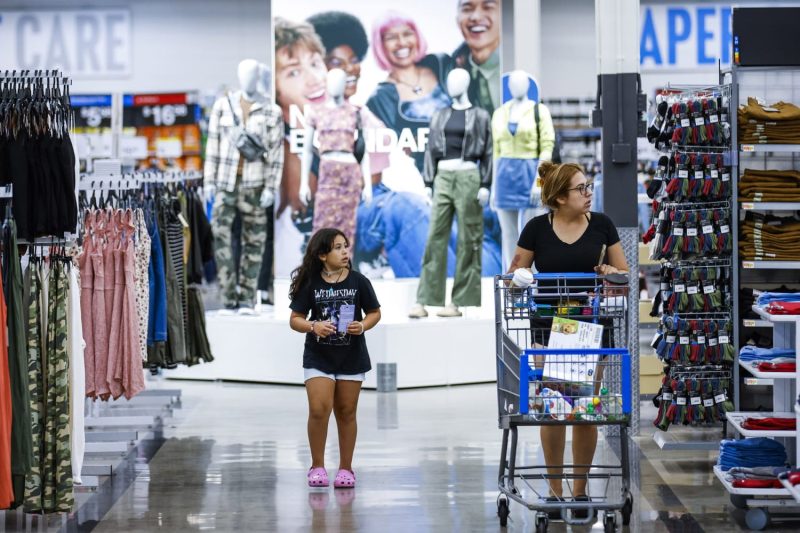
Walmart remains cautious about the financial health of its shoppers, but executives at the retail giant do not see a full-blown downturn on the horizon.
In an interview with CNBC, Walmart Chief Financial Officer John David Rainey said that the company decided not to raise expectations for the second half of the year given uncertainties like the 2024 election and unrest in the Middle East that could up-end consumer sentiment.
But he said shoppers’ activity had been stable in the first six months of the year. The sentiment was echoed later Thursday as the Commerce Department reported that nationwide retail sales unexpectedly popped in July.
“In this environment, it’s responsible or prudent to be a little bit guarded with the outlook, but we’re not projecting a recession,” Rainey said, as the company released its latest quarterly results Thursday.
Whether the U.S. is headed toward a recession, usually defined as two-consecutive quarters of negative growth, has been a hot topic among economists and business leaders for months. A strong economic recovery from the pandemic has seen U.S. gross domestic product (the broadest measure of economic output) continue to rise. But efforts to bring inflation down with higher interest rates have led to some concern that the economy could see a period of contraction.
Part of the focus on whether a recession is on the way has been on U.S. consumers and whether they will continue to spend. Walmart said its latest quarterly revenue grew nearly 5% thanks to increasing visits to both physical stores and Walmart.com. Rainey said consumers continue to hunt for discounts, but that there had not yet been a significant downturn in their activity, with back-to-school season “off to a pretty good start.”
“We see, among our members and customers, that they remain choiceful, discerning, value-seeking, focusing on things like essentials rather than discretionary items, but importantly, we don’t see any additional fraying of consumer health,” Rainey said.
A key driver of the stability: low inflation. While high prices remain a major focus on the campaign trail — with both presidential candidates talking up how they will take on the higher prices of everyday items — Rainey said price growth was flat for Walmart year over year.
Sales growth was thus driven by selling more units rather than higher prices: Rainey said Walmart has pushed vendors to reduce prices, and that the company saw 7,200 “rollbacks,” or short-term deals on items, in the quarter, including a 35% increase in the number of rollbacks on food.
Rainey said Walmart is likely benefitting as customers look for cheaper alternatives to fast food — a sector that has seen a downturn as consumers have pushed back on price increases. He referred to inflation data, which came out this week and showed grocery price growth has essentially flattened out.
“It stands to reason that customers are shifting to prepare more meals at home versus versus eating out,” he said.

